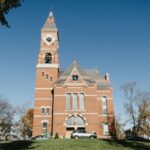In two and a half weeks, Marblehead voters will determine the fate of a proposed $2.47 million override to plug a structural deficit in the town’s budget fueled by stagnant revenue growth and a historic reliance on free cash.
But, what exactly is an override?
At its most basic level, an override is a request to permanently increase the tax base, meaning the town will pull in more revenue via property taxes and thus be able to craft a budget with higher amounts of spending. Proposition 2 ½, a state law enacted decades ago, dictates that communities cannot “levy more than 2.5 percent of the total full and fair cash value of all taxable real and personal property in the community.” This means that communities like Marblehead are constrained in the amount they can tax residents.
The levy is simply “the revenue a community can raise through real and personal property taxes,” according to the Division of Local Services. Each year, the Department of Revenue calculates a community’s levy limit by taking the previous year’s levy limit and adding 2.5 percent. For Marblehead, a base levy of roughly $68.8 million in fiscal year 2023 becomes $70.5 million for FY24.
An override permanently adds a certain figure to the levy — in this case $2.47 million — meaning that when the levy is calculated for the coming year that figure is baked in, regardless of the Proposition 2 ½ limits. So, should the override pass, the levy limit would be calculated from a starting figure of $72.9 million, with the 2.5 percent increase added.
The levy does not make up the entirety of the town’s revenue for the coming fiscal year. That is why the operating budget has grown to more than $112 million, with the town adding roughly $8 million worth of free cash, $10 million in debt exclusions, and $450,000 in new growth to its budget, along with enterprise funds for water, sewer, and harbor expenses.
So, what does all this mean for you? The simple answer is higher taxes.
The override money will come directly out of taxpayer’s pockets in perpetuity. While property tax values for the coming fiscal year have not been finalized, and town officials have not publicly commented on the impact on tax bills, an override in the amount of $2,472,056 would have added $319.44 to the average single-family tax bill in FY23.
On Monday, the Select Board voted to approve an override in that amount, and the Finance Committee voted to recommend Article 31, which asks Town Meeting to create the override.
Town Meeting will have the first say on the future of the override, and should it pass on May 1, it will go before the voters during the town’s annual election on June 20.

